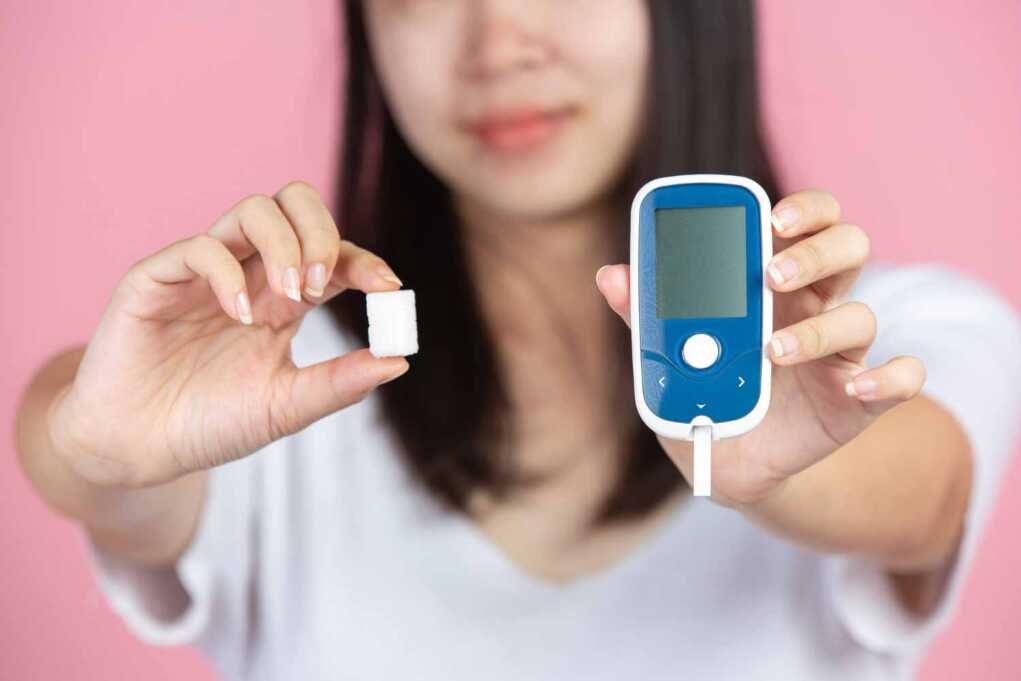
Though insulin resistance and diabetes are not the same, they are related, and one can influence the other. Treatment may depend on what’s causing insulin resistance and if you’ve been diagnosed with diabetes.
Insulin resistance and diabetes are closely related. But not everyone who is insulin resistant has diabetes, and not all people with diabetes are insulin resistant.
However, insulin resistance increases your chances of developing both prediabetes and type 2 diabetes, in particular.
This article explains the similarities and differences between insulin resistance and diabetes.
What Are The Differences Between Insulin Resistance And Diabetes?
Though interconnected, they are quite different.
Both are tied to your body’s ability to make or use insulin, a key hormone that allows glucose to enter the body’s cells from the bloodstream to be used for energy. When someone has prediabetes or diabetes or is developing insulin resistance, their body cannot correctly create or use insulin as it naturally would.
If your body has to secrete more insulin than usual to manage blood sugar levels adequately, then you have insulin resistance.
Many people are insulin resistant but do not have diabetes.
Over time, insulin resistance can lead to prediabetes and, if not reversed, can lead to type 2 diabetes.
The development of prediabetes and type 2 diabetes occurs when the body is so insulin resistant that the pancreas can no longer make enough insulin to maintain usual blood sugar levels, and your cells are not responding to the insulin your body is secreting.
People with diabetes need to manage their blood sugar levels with diet, exercise, and sometimes prescription medications like metformin or insulin.
Insulin resistance does not lead to type 1 diabetes. In this autoimmune condition, the body’s immune system has destroyed the insulin-making beta cells of the pancreas, and thus no insulin is being made in the body. But people with T1D can become insulin resistant over time, which makes managing blood sugar levels more difficult.
What Are The Symptoms Of Insulin Resistance?
The symptoms of insulin resistance can go undetected for years and are not as evident as those experienced when someone has developed diabetes.
You may be developing insulin resistance if you experience the following:
- higher-than-normal blood sugar levels (100 mg/dL or higher if you haven’t eaten in several hours
- high fasting triglycerides (150 mg/dL or higher)
- high LDL cholesterol
- are sedentary
- obesity
However, some symptoms of insulin resistance may also include:
- males with a waistline of more than 40 inches and females more than 35 inches
- skin tags or patches of skin that are darker and thicker than usual (acanthosis nigricans)
- blood pressure of 130/80 or higher
- the 3-month average glucose test (A1C) between 5.7%-6.3%
- HDL cholesterol levels below 40 mg/dL in males or below 50 mg/dL in females
How Does Insulin Resistance Impact Your Diabetes?
Insulin resistance can make managing your blood sugar levels much harder and keep them within a healthy range. It can also lead to chronically high blood sugar and A1C levels, increasing your risk for long-term diabetes complications.
Insulin resistance will require you to take more insulin (if you take exogenous insulin) or your body to secrete more insulin for the foods you eat daily.
This can also lead to weight gain, complicating aspects of your diabetes management, including exercise and maintaining healthy blood pressure and cholesterol levels.
What Impact Does Obesity Have On Insulin Resistance?
Excess body fat in the form of obesity, especially in the abdomen and around the organs (also known as visceral fat), is the leading cause of insulin resistance.
Losing excess body weight and being active are the best ways to reduce insulin resistance and lower your chances of developing prediabetes and type 2 diabetes.
Can You Be Insulin Resistant Without Having Diabetes?
Yes, you can.
A 2021 study found that 40% of adults in the United States have insulin resistance. Many of those people also had either prediabetes or type 2 diabetes.
Many people experience insulin resistance for years before developing prediabetes or type 2 diabetes; some may never develop those later conditions.
Being insulin resistant, however, is the primary cause of prediabetes and type 2 diabetes.
If you are insulin resistant, you should consult your doctor about ways to reverse it to prevent health complications later in life.
How Do You Treat Insulin Resistance?
The primary ways to reverse insulin resistance include losing excess body weight, eating a diet as recommended by a doctor, and becoming physically active.
Talk with your doctor about developing a meal plan that can meet your health goals and ways to incorporate more physical activity.
The Centers for Disease Control and Prevention (CDC) recommends that most adults get at least 150 minutes of moderate activity per week, or at least 30 minutes per day most days of the week, along with at least two days per week of strength training exercises.
When To Seek Medical Attention
If you’re feeling unwell, contact your doctor. If you’re experiencing the following symptoms (symptoms of diabetes), seek medical attention immediately:
- excessive thirst
- frequent urination
- fruity-smelling breath
- slow-healing wounds or infections
- unexplained weight loss
- blurry vision or changes to your vision
- fatigue or lethargy
Takeaway
Insulin resistance and diabetes are closely related, but they are not the same. Insulin resistance is a broader term meaning that your body has to secrete more insulin than usual to manage blood sugar levels.
A diagnosis of diabetes is when your blood sugar levels reach a high enough threshold due to the body’s inability to produce enough insulin. Many people are insulin resistant but do not have diabetes, but being insulin resistant can lead to prediabetes and type 2 diabetes.
You may want to consult your doctor or healthcare team if you’re experiencing the signs and symptoms of insulin resistance. This can be important to help treat before a diabetes diagnosis.
Sources:
- Freeman A, et al. (2022). Insulin resistance.
https://www.ncbi.nlm.nih.gov/books/NBK507839/#:~:text=Progression%20of%20insulin%20resistance%20can,and%20type%202%20diabetes%20mellitus - How much physical activity do adults need? (2022).
https://www.cdc.gov/physicalactivity/basics/adults/index.htm - Insulin resistance and diabetes. (2022).
https://www.cdc.gov/diabetes/basics/insulin-resistance.html#:~:text=How%20do%20you%20find%20out,determine%20you%20have%20insulin%20resistance - Insulin resistance and prediabetes. (2018).
https://www.niddk.nih.gov/health-information/diabetes/overview/what-is-diabetes/prediabetes-insulin-resistance
Important Notice: This article was originally published at www.healthline.com by Megan Severs where all credits are due. Medically reviewed by Kelly Wood, MD
Disclaimer
The watching, interacting, and participation of any kind with anything on this page does not constitute or initiate a doctor-patient relationship with Dr. Farrah™. None of the statements here have been evaluated by the Food and Drug Administration (FDA). The products of Dr. Farrah™ are not intended to diagnose, treat, cure, or prevent any disease. The information being provided should only be considered for education and entertainment purposes only. If you feel that anything you see or hear may be of value to you on this page or on any other medium of any kind associated with, showing, or quoting anything relating to Dr. Farrah™ in any way at any time, you are encouraged to and agree to consult with a licensed healthcare professional in your area to discuss it. If you feel that you’re having a healthcare emergency, seek medical attention immediately. The views expressed here are simply either the views and opinions of Dr. Farrah™ or others appearing and are protected under the first amendment.
Dr. Farrah™ is a highly experienced Licensed Medical Doctor certified in evidence-based clinical nutrition, not some enthusiast, formulator, or medium promoting the wild and unrestrained use of nutrition products for health issues without clinical experience and scientific evidence of therapeutic benefit. Dr. Farrah™ has personally and keenly studied everything she recommends, and more importantly, she’s closely observed the reactions and results in a clinical setting countless times over the course of her career involving the treatment of over 150,000 patients.
Dr. Farrah™ promotes evidence-based natural approaches to health, which means integrating her individual scientific and clinical expertise with the best available external clinical evidence from systematic research. By individual clinical expertise, I refer to the proficiency and judgment that individual clinicians acquire through clinical experience and clinical practice.
Dr. Farrah™ does not make any representation or warranties with respect to the accuracy, applicability, fitness, or completeness of any multimedia content provided. Dr. Farrah™ does not warrant the performance, effectiveness, or applicability of any sites listed, linked, or referenced to, in, or by any multimedia content.
To be clear, the multimedia content is not intended to be a substitute for professional medical advice, diagnosis, or treatment. Always seek the advice of your physician or other qualified health providers with any questions you may have regarding a medical condition. Never disregard professional medical advice or delay in seeking it because of something you have read or seen in any website, video, image, or media of any kind. Dr. Farrah™ hereby disclaims any and all liability to any party for any direct, indirect, implied, punitive, special, incidental, or other consequential damages arising directly or indirectly from any use of the content, which is provided as is, and without warranties.








